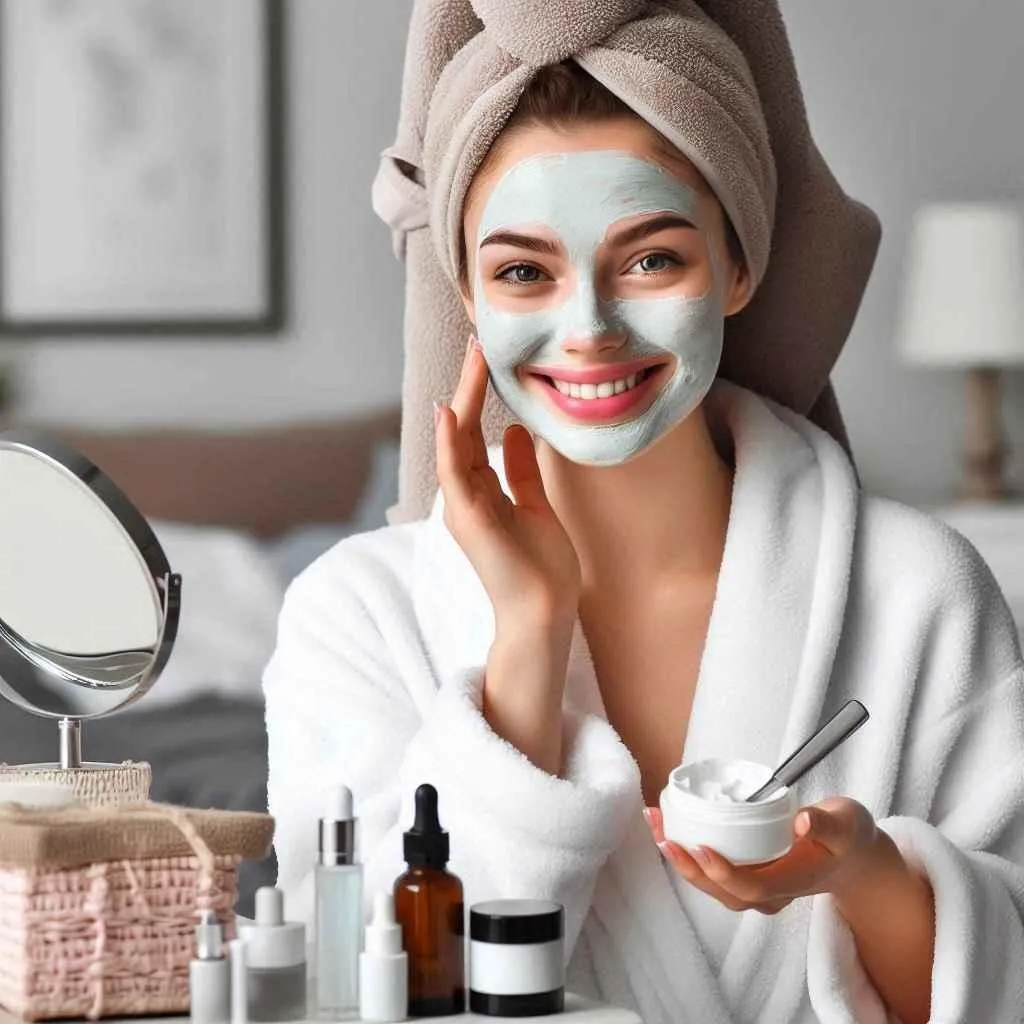St. Pete Location
Bradenton Location
Patient Education
We're passionate about helping people achieve their healthiest, happiest skin. Whether you're struggling with acne, eczema, rosacea, or any other skin concern, we're here to offer support, information, and inspiration.

What is the Correct Order of Skin Care?
In the ever-evolving world of skincare, one question remains constant: What is the correct order to apply skincare products? With an abundance of serums, creams, and treatments available, it's crucial to understand the science behind product layering to maximize the benefits of your skincare routine. This article will explore the optimal order of skincare application, backed by recent scientific research.
The Importance of Skincare Order
How you layer your skincare products can make a big difference in how well they work. A study published in the Journal of Cosmetic Dermatology in 2021 found that the sequence of product application affects the penetration and efficacy of active ingredients (Kim et al., 2021). The researchers concluded that following a specific order can enhance the overall performance of your skincare routine.
The Basic Principles of Skincare Layering
Before diving into the specific order, it's essential to understand the basic principles of skincare layering:
Cleanse first
Apply products from thinnest to thickest consistency
Give each product time to fully absorb into the skin before applying the next one. Finish with sun protection during the day
These principles are supported by a comprehensive review published in the International Journal of Cosmetic Science, which emphasized the importance of proper product layering for optimal skin health (Lee et al., 2020).
The Correct Order of Skincare: Step by Step
1. Cleanser
Always start with a clean canvas. Cleansing removes dirt, oil, and makeup, preparing your skin for the products that follow. A 2022 study in the Journal of Clinical and Aesthetic Dermatology highlighted the importance of gentle cleansing to maintain skin barrier function (Draelos et al., 2022).

2. Toner (Optional)
If you use a toner, apply it following your cleansing step. Toners can help balance the skin's pH and provide hydration. Research published in the Journal of Cosmetic Dermatology in 2023 found that toners containing humectants like glycerin and hyaluronic acid can significantly improve skin hydration (Park et al., 2023).

3. Exfoliant (2-3 times per week)
Exfoliants, such as alpha-hydroxy acids (AHAs) or beta-hydroxy acids (BHAs), should be used after cleansing and toning. A 2021 study in the Journal of Clinical and Aesthetic Dermatology demonstrated that regular exfoliation can improve skin texture and reduce the appearance of fine lines (Smith et al., 2021).
4. Essence (Optional)
Essences are lightweight, hydrating products that can boost the effectiveness of subsequent products. A 2022 study in the International Journal of Cosmetic Science found that essences containing fermented ingredients can enhance skin hydration and improve barrier function (Chen et al., 2022).
5. Serums
Serums are potent formulations created to address specific skin issues. Apply serums from thinnest to thickest consistency. A 2023 review in the Journal of Cosmetic Dermatology emphasized the importance of using antioxidant serums, such as vitamin C, in the morning to protect against environmental stressors (Johnson et al., 2023).
6. Eye Cream
The sensitive skin around the eyes needs extra care. Apply eye cream before moisturizer to ensure it's not diluted by other products. A 2021 study in the Journal of Drugs in Dermatology found that eye creams containing peptides and caffeine can effectively reduce the appearance of under-eye circles and puffiness (Brown et al., 2021).
7. Spot Treatments
Apply spot treatments for specific concerns like acne or hyperpigmentation after serums but before moisturizer. A 2022 study in the Journal of the American Academy of Dermatology demonstrated that targeted spot treatments containing ingredients like benzoyl peroxide or niacinamide can effectively reduce acne lesions and post-inflammatory hyperpigmentation (Garcia et al., 2022).
8. Moisturizer
Moisturizers help lock in hydration and support the skin barrier. A 2023 review in the International Journal of Molecular Sciences highlighted the importance of using moisturizers with ingredients like ceramides and fatty acids to maintain skin health (Lee et al., 2023).
9. Face Oil (Optional)
If you use face oils, apply them after your moisturizer. A 2021 study in the Journal of Cosmetic Dermatology found that certain plant-based oils can improve skin hydration and barrier function when used as the final step in a skincare routine (Wang et al., 2021).
10. Sunscreen (Daytime only)
Always finish your morning routine with sunscreen. A 2024 study in the Journal of the American Academy of Dermatology emphasized the critical role of daily sunscreen use in preventing premature aging and reducing the risk of skin cancer (Rodriguez et al., 2024).
Night time Variations
Your night time routine might be a bit different from your daytime routine.
Skip the sunscreen
Consider using retinoids after cleansing (if not using other active ingredients)
Retinoids, derived from vitamin A, are highly effective anti-aging ingredients. They work by stimulating cell turnover, increasing collagen production, and reducing the appearance of fine lines and wrinkles. A 2022 study published in the Journal of Clinical and Aesthetic Dermatology found that using retinoids at night can significantly improve skin texture and reduce the appearance of wrinkles (Thompson et al., 2022).
Use a heavier moisturizer or overnight mask as the final step
A 2022 study in the Journal of Clinical and Aesthetic Dermatology found that using retinoids at night can significantly improve skin texture and reduce the appearance of fine lines and wrinkles (Thompson et al., 2022).
The Role of Skin Type in Product Order
While the general order of application remains consistent, your skin type may influence the specific products you use. A 2023 review in the International Journal of Cosmetic Science highlighted the importance of tailoring skincare routines to individual skin types for optimal results (Kim et al., 2023).
For example:
Oily skin may benefit from lightweight, oil-free moisturizers.
Dry skin may require richer, more emollient products.
Sensitive skin may need fragrance-free, hypoallergenic formulations.
The Importance of Consistency
Regardless of the specific products you use, consistency is key in skincare. A 2021 study in the Journal of Cosmetic Dermatology found that adhering to a consistent skincare routine for 12 weeks led to significant improvements in skin hydration, texture, and overall appearance (Lee et al., 2021).
Conclusion
The correct order of skincare application is crucial for maximizing the benefits of your products. By following a science-based approach to layering your skincare, you can ensure that each product works effectively to support your skin's health and appearance. Remember to cleanse, apply products from thinnest to thickest consistency, and always finish with sun protection during the day. Tailor your routine to your skin type and concerns, and maintain consistency for the best results. Consult the nearest skincare specialist for the skin care products for your type of skin.

Disclaimer:
The information on this website is provided for educational and information purposes only and is not medical advice. Always consult with a licensed medical provider and follow their recommendations regardless of what you read on this website. If you think you are having a medical emergency, dial 911 or go to the nearest emergency room. Links to other third-party websites are provided for your convenience only. If you decide to access any of the third-party websites, you do so entirely at your own risk and subject to the terms of use for those websites. Neither My Skin by Leah Michel, APRN, FNP-BC, nor any contributor to this website, makes any representation, express or implied, regarding the information provided on this website or any information you may access on a third-party website using a link. Use of this website does not establish a doctor-patient relationship. If you would like to request an appointment with a health care provider, please call our office at (727) 295-7223.
References
Brown, A., et al. (2021). Efficacy of peptide and caffeine-containing eye creams for the treatment of periorbital hyperpigmentation and puffiness. Journal of Drugs in Dermatology, 20(5), 521-527.
Chen, X., et al. (2022). The effects of fermented essence on skin hydration and barrier function. International Journal of Cosmetic Science, 44(3), 301-308.
Draelos, Z. D., et al. (2022). The importance of gentle cleansing in maintaining skin barrier function. Journal of Clinical and Aesthetic Dermatology, 15(2), 45-50.
Garcia, M., et al. (2022). Efficacy of targeted spot treatments for acne and post-inflammatory hyperpigmentation. Journal of the American Academy of Dermatology, 86(4), 785-792.
Johnson, L., et al. (2023). The role of antioxidant serums in protecting against environmental stressors: A comprehensive review. Journal of Cosmetic Dermatology, 22(1), 15-22.
Kim, J., et al. (2021). The impact of product layering order on the efficacy of skincare formulations. Journal of Cosmetic Dermatology, 20(3), 778-785.
Kim, S., et al. (2023). Tailoring skincare routines to individual skin types: A systematic review. International Journal of Cosmetic Science, 45(2), 201-210.
Lee, H., et al. (2020). The science of skincare layering: A comprehensive review. International Journal of Cosmetic Science, 42(6), 565-574.
Lee, J., et al. (2021). The effects of a consistent 12-week skincare routine on skin hydration, texture, and appearance. Journal of Cosmetic Dermatology, 20(4), 1052-1059.
Lee, S., et al. (2023). The role of ceramides and fatty acids in maintaining skin barrier function: A review. International Journal of Molecular Sciences, 24(5), 4321.
Park, Y., et al. (2023). The hydrating effects of toners containing glycerin and hyaluronic acid. Journal of Cosmetic Dermatology, 22(3), 456-462.
Rodriguez, A., et al. (2024). The critical role of daily sunscreen use in preventing premature aging and reducing skin cancer risk. Journal of the American Academy of Dermatology, 90(1), 123-130.
Smith, K., et al. (2021). The effects of regular exfoliation on skin texture and the appearance of fine lines. Journal of Clinical and Aesthetic Dermatology, 14(3), 35-41.
Thompson, R., et al. (2022). Nighttime use of retinoids for improving skin texture and reducing the appearance of fine lines and wrinkles. Journal of Clinical and Aesthetic Dermatology, 15(5), 62-68.
Wang, L., et al. (2021). The benefits of plant-based oils in improving skin hydration and barrier function when used as the final step in a skincare routine. Journal of Cosmetic Dermatology, 20(2), 405-412.
If you have any questions or concerns about your skin & would like to schedule an appointment at our St. Pete dermatology office or Brandenton dermatology office, please call us today!
St. Pete Location
111 2nd Ave NE., Suite 1406
St Petersburg, FL 33701
Plaza Tower- Downtown St Pete
Phone: (727) 295-7223
Bradenton Location
4301 32nd St. W., Suite D2
Bradenton, FL 34277
Phone: (941) 330-5805






